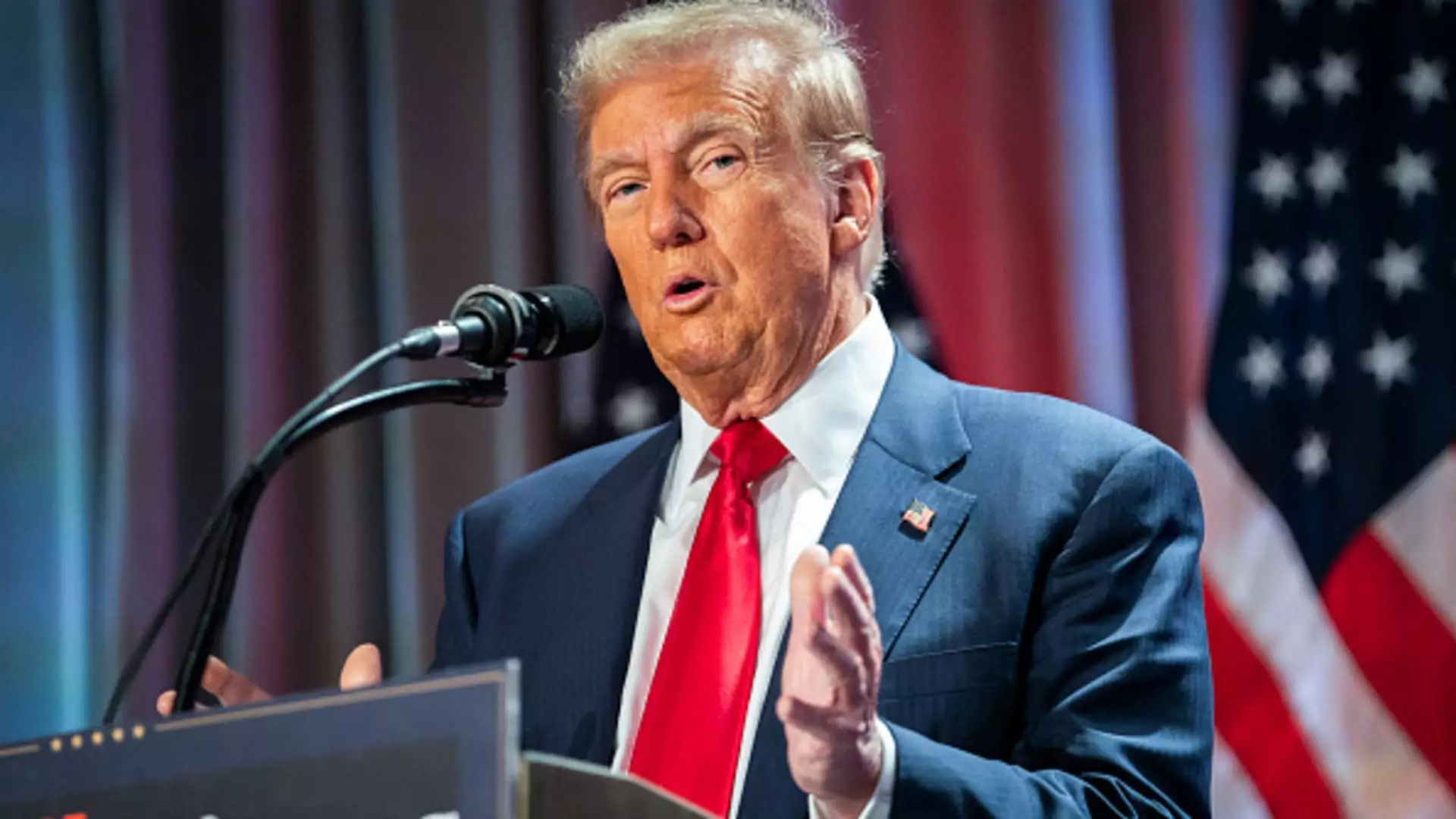As the U.S. gears up for the impact of President-elect Donald Trump’s proposed tariff agenda, seasoned money manager John Davi emphasizes the importance of strategic investment choices. With potential challenges looming on the horizon, Davi, the CEO and Chief Investment Officer of Astoria Portfolio Advisors, is candid about his apprehensions. He cautions that the incoming administration’s policies might provoke inflationary trends that could disrupt various sectors. As such, Davi advocates for a selective approach to investments, particularly highlighting the advantages of smaller-cap industrial stocks over their larger counterparts.
Davi’s analysis suggests that small-cap industrials stand to benefit more significantly from Trump’s pro-growth, domestic-oriented policy framework than large-cap stocks. His assertion is backed by market sentiment; since the election results, the Russell 2000 index—a barometer of small-cap performance—has witnessed a notable ascent, climbing approximately 4% as of the latest figures. This uptick reflects a broader optimism among investors regarding the future economic landscape. Davi’s $1.9 billion assets under management further lend credence to his strategies, as they are rooted in both analysis and market responsiveness.
Given the potential disruptions tied to tariffs and foreign trade, Davi expresses a preference for domestic investments. This approach appears to derive from a belief that, until the midterm elections, Trump’s administration will exert considerable influence over economic policies. “We are overweight the U.S.,” Davi states emphatically, reinforcing the notion that domestic companies are likely to weather the impending changes better than their international counterparts. For investors, this could mean fortifying a portfolio with U.S.-based assets as a hedge against tariff repercussions.
However, Davi’s insights do not stop at equities. He issues a clear warning regarding fixed income investments, particularly in light of the increasing budget deficit forecast for the coming years. With the benchmark 10-year Treasury yield climbing approximately 3% since the election, Davi advises caution for those holding bonds. The traditional safety associated with fixed income might be jeopardized by looming inflation and fiscal uncertainties, making it potentially less secure in a shifting economic environment. This perspective calls for a reevaluation of conventional investment wisdom that often favors bonds during periods of financial instability.
John Davi’s investment strategy reflects a cautious yet proactive response to an evolving economic climate shaped by the incoming administration’s tariff policies. By advocating for small-cap stocks and emphasizing domestic investments while urging caution in fixed income securities, Davi presents a well-rounded approach that aims to capitalize on potential growth while mitigating risks associated with inflation and fiscal challenges. Investors would do well to heed Davi’s insights as they navigate the uncertainties that lie ahead in this dynamic market landscape.

